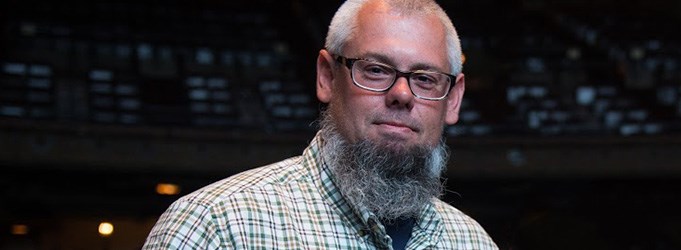 comunidad
comunidad
Perry Swisher
- United States

FAP—familial adenomatous polyposis syndrome—is a rare and inherited disease that leads to colon cancer, usually by the age of 40.
And it can devastate a family. Perry Swisher knows that firsthand. His grandmother died at the age of 53 and his mother died at the age of 36—both from colon cancer. His uncle was diagnosed with FAP very young and opted for an ileostomy in his early 20s. So when Perry began seeing blood in his stool in late 2013—at the age of 35—he feared the worst.
Tests showed that Perry’s intestines were full of polyps, and doctors feared he wouldn’t survive more than a couple of years. “I remember thinking about my family—how colon cancer had affected us—and I decided to fight.”
"I remember thinking about my family—how colon cancer had affected us—and I decided to fight."
Like his uncle, Perry decided to have an ileostomy. “That’s when my new life began,” he says. “It was very painful and awkward at first. But my family was very supportive. My uncle coached me through life with an ostomy. He works two full-time jobs and never complains about anything. I’m thankful for this knowledge about life with an ostomy. He’s my hero.”
Today, Perry is a heavy-equipment operator, specializing in road graders used in building roads . He says that working in such a physically demanding job while dealing with an ostomy has been a challenge, but not the only challenge.
“Until now, I only thought about the physical side of having an ostomy; I didn’t think about the other challenges, like having the confidence to keep doing the things I did before surgery. Knowing that people with an ostomy can work, go to school, raise families, and do everything that other people can do has helped me get on with my life. I’m thankful for the people in my life who have helped me feel normal again.”
